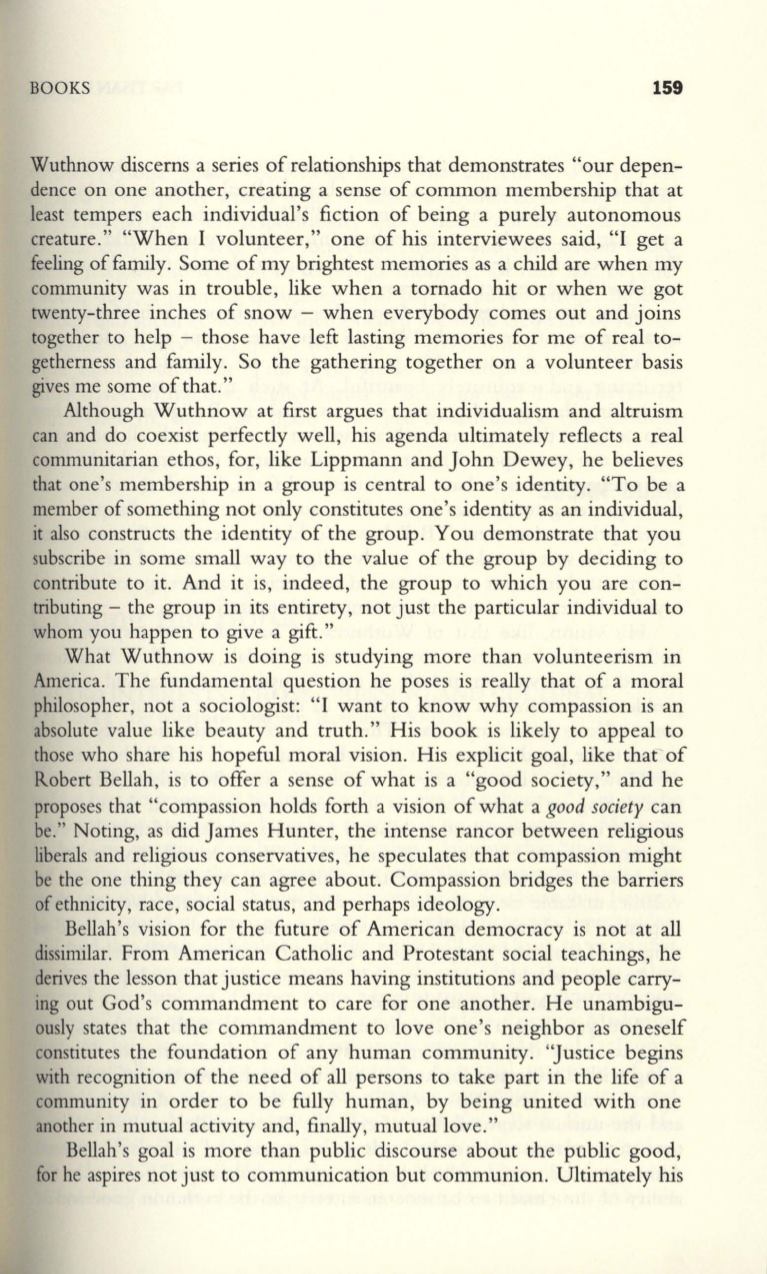
BOOKS
159
Wuthnow discerns a series of relationships that demonstrates "our depen–
dence on one another, creating a sense of common membership that at
least tempers each individual's fiction of being a purely autonomous
creature." "When I volunteer," one of his interviewees said, "I get a
feeling of family. Some of my brightest memories as a child are when my
community was in trouble, like when a tornado hit or when we got
twenty- three inches of snow - when everybody comes out and joins
together to help - those have left lasting memories for me of real to–
getherness and family. So the gathering together on a volunteer basis
gives me some of that."
Although Wuthnow at first argues that individualism and altruism
can and do coexist perfectly well, his agenda ultimately reflects a real
communitarian ethos, for , like Lippmann and John Dewey, he believes
that one's membership in a group is central to one's identity. "To be a
member of something not only constitutes one's identity as an individual,
it also constructs the identity of the group. You demonstrate that you
subscribe in some small way to the value of the group by deciding to
contribute to it. And it is, indeed, the group to which you are con–
tributing - the group in its entirety, not just the particular individual to
whom you happen to give a gift."
What Wuthnow is doing is studying more than volunteerism in
America. The fundamental question he poses is really that of a moral
philosopher, not a sociologist: "I want to know why compassion is an
absolute value like beauty and truth." His book is likely to appeal to
those who share his hopeful moral vision. His explicit goal, like thaCof
Robert Bellah, is to offer a sense of what is a " good society," and he
proposes that "compassion holds forth a vision of what a
good society
can
be." Noting, as did James Hunter, the intense rancor between religious
liberals and religious conservatives, he speculates that compassion might
be the one thing they can agree about. Compassion bridges the barriers
of ethnicity, race, social status, and perhaps ideology.
Bellah's vision for the future of American democracy is not at all
dissimilar. From American Catholic and Protestant social teachings, he
derives the lesson that justice means having institutions and people carry–
ing out God's commandment to care for one another. He unambigu–
ously states that the commandment to love one's neighbor as oneself
constitutes the foundation of any human community. "Justice begins
with recognition of the need of all persons to take part in the life of a
community in order to be fully human, by being united with one
another in mutual activity and, finally, mutual love."
Bellah's goal is more than public discourse about the public good,
for he aspires not just to communication but communion. Ultimately his


